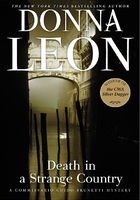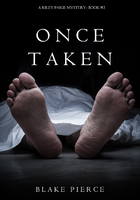"Good morning," he replied.
Colonel Johnny Abbes had placed on his desk the daily morning report on the previous night's events, along with warnings and suggestions. He liked reading them; the colonel didn't waste time on stupid shit, like the former head of the SIM, General Arturo R. Espaillat (Razor), a graduate of West Point who'd bored him with his lunatic strategies. Had Razor worked for the CIA? They assured him he had. But Johnny Abbes couldn't confirm it. If there was anybody not working for the CIA it was the colonel: he hated the Yankees.
"Coffee, Excellency?"
Johnny Abbes was in uniform. Though he made an effort to wear it with the correctness Trujillo demanded, he could not do more than his flaccid, misshapen physique allowed. Fairly short, with a protruding belly that complemented his dewlaps, and a prominent chin divided by a deep cleft. His cheeks were flabby too. Only his cruel, shifting eyes revealed the intelligence behind the physical calamity. He was thirty-five or thirty-six years old but looked like an old man. He hadn't gone to West Point or to any military academy; he wouldn't have been admitted, for he lacked a soldier's physique and a military vocation. He was what Gittleman, the Benefactor's instructor when he was a Marine, would have called "a toad in body and soul": no muscles, too much fat, and an excessive fondness for intrigue. Trujillo made him a colonel overnight when, in one of those inspirations that marked his political career, he decided to name him head of the SIM to replace Razor. Why did he do it? Not because Abbes was cruel but because he was cold: the iciest individual Trujillo had ever known in this country of hot bodies and souls. Was it a fortunate decision? Recently the colonel had made errors. The failed attempt on the life of President Betancourt was not the only one; he had also been wrong about the supposed uprising against Fidel Castro by Commanders Eloy Gutiérrez Menoyo and William Morgan, which had turned out to be a trick by the Beard to draw Cuban exiles to the island and capture them. The Benefactor was thoughtful as he turned the pages of the report and sipped his coffee.
"You insist on pulling Bishop Reilly out of Santo Domingo Academy," he murmured. "Sit down, have some coffee."
"If you'll permit me, Excellency?"
The colonel's melodious voice dated from his youth, when he had been a radio announcer commenting on baseball, basketball, and horse races. From that period, he had kept only his fondness for esoteric reading—he admitted he was a Rosicrucian—the handkerchiefs he dyed red because, he said, it was a lucky color for an Aries, and his ability to see each person's aura (all of it bullshit that made the Generalissimo laugh). He settled himself in front of the Chief's desk, holding a cup of coffee in his hand. It was still dark outside, and the office was half in shadow, barely lit by a small lamp that enclosed Trujillo's hands in a golden circle.
"That abscess must be lanced, Excellency. Our biggest problem isn't Kennedy, he's too busy with the failure of his Cuban invasion. It's the Church. If we don't put an end to the fifth columnists here, we'll have problems. Reilly serves the purposes of those who demand an invasion. Every day they make him more important, while they pressure the White House to send in the Marines to help the poor, persecuted bishop. Don't forget, Kennedy's a Catholic."
"We're all Catholics," Trujillo said with a sigh. And demolished the colonel's argument: "That's a reason not to touch him. It would give the gringos the excuse they're looking for."
Though there were times when the colonel's frankness displeased Trujillo, he tolerated it. The head of the SIM had orders to speak to him with absolute sincerity even when it might offend his ears. Razor didn't dare use that prerogative in the way Johnny Abbes did.
"I don't think we can go back to our old relationship with the Church, that thirty-year idyll is over," Abbes said slowly, his eyes like quicksilver in their sockets, as if searching the area for ambushes. "They declared war on us on January 24, 1960, with their Bishops' Pastoral Letter, and their goal is to destroy the regime. A few concessions won't satisfy the priests. They won't support you again, Excellency. The Church wants war, just like the Yankees. And in war there are only two options: surrender to the enemy or defeat him. Bishops Panal and Reilly are in open rebellion."
Colonel Abbes had two plans. One, to use the paleros—thugs armed with clubs and knives led by Balá, an ex-convict in his service—as a shield while the caliés rioted, pretending to be recalcitrant groups that had broken away from large protest demonstrations against the terrorist bishops in La Vega and at Santo Domingo Academy, and killed the prelates before the police could rescue them. This formula was risky; it might provoke an invasion. The advantage was that the death of the two bishops would paralyze the rest of the clergy for a long time to come. In the other plan, the police rescued Panal and Reilly before they could be lynched by a mob, and the government deported them to Spain and the United States, arguing that this was the only way to guarantee their safety. Congress would pass a law establishing that all priests who exercised their ministry in the country had to be Dominicans by birth. Foreigners or naturalized citizens would be returned to their own countries. In this way—the colonel consulted a notebook—the Catholic clergy would be reduced by a third. The minority of native-born priests would be manageable.
He stopped speaking when the Benefactor, whose head had been lowered, looked up.
"That's what Fidel Castro did in Cuba."
Johnny Abbes nodded:
"There the Church started out with protests too, and ended up conspiring to prepare the way for the Yankees. Castro threw out the foreign priests and took drastic measures against the ones who were left. What happened to him? Nothing."
"So far," the Benefactor corrected him. "Kennedy will send the Marines to Cuba any day now. And this time it won't be the kind of mess they made last month at the Bay of Pigs."
"In that case, the Beard will die fighting," Johnny Abbes agreed. "And it isn't impossible that the Marines will land here. And you've decided that we'll die fighting too."
Trujillo gave a mocking little laugh. If they had to die fighting the Marines, how many Dominicans would sacrifice themselves with him? The soldiers would, no doubt about that. They proved it during the invasion sent by Fidel on June 14, 1959. They fought well, they wiped out the invaders in just a few days, in the mountains of Costanza, on the beaches of Maimón and Estero Hondo. But the Marines …
"I won't have many with me, I'm afraid. The rats running away will raise a dust storm. But you won't have a choice, you'll have to die with me. Wherever you go you'll face jail, or assassination by the enemies you have all over the world."
"I've made them defending the regime, Excellency."
"Of all the men around me, the only one who couldn't betray me, even if he wanted to, is you," an amused Trujillo insisted. "I'm the only person you can get close to, the only one who doesn't hate you or dream about killing you. We're married till death do us part."
He laughed again, in a good humor, examining the colonel the way an entomologist examines an insect difficult to classify. They said a lot of things about Abbes, especially about his cruelty. It was an advantage for somebody in his position. They said, for example, that his father, an American of German descent, found little Johnny, still in short pants, sticking pins into the eyes of chicks in the henhouse. That as a young man he sold medical students cadavers he had robbed from graves in Independencia Cemetery. That though he was married to Lupita, a hideous Mexican, hard as nails, who carried a pistol in her handbag, he was a faggot. Even that he had gone to bed with Kid Trujillo, the Generalissimo's half brother.
"You've heard what they say about you," he said, looking him in the eye and laughing. "Some of it must be true. Did you like poking out chickens' eyes when you were a kid? Did you rob the graves at Independencia Cemetery and sell the corpses?"
The colonel barely smiled.
"The first probably isn't true, I don't remember doing it. The second is only half true. They weren't cadavers, Excellency. Bones and skulls washed up to the surface by the rain. To earn a few pesos. Now they say that as head of the SIM, I'm returning the bones."
"And what about you being a faggot?"
The colonel didn't become upset this time either. His voice maintained a clinical indifference.
"I've never gone in for that, Excellency. I've never gone to bed with a man."
"Okay, enough bullshit," he cut him off, becoming serious. "Don't touch the bishops, for now. We'll see how things develop. If they can be punished, we'll do it. For the moment, just keep an eye on them. Go on with the war of nerves. Don't let them sleep or eat in peace. Maybe they'll decide to leave on their own."
Would the two bishops get their way and be as smug as that black bastard Betancourt? Again he felt his anger rise. That rat in Caracas had gotten the OAS to sanction the Dominican Republic and pressured the member countries to break off relations and apply economic pressures that were strangling the nation. Each day, each hour, they were damaging what had been a brilliant economy. And Betancourt was still alive, the standard-bearer of freedom, displaying his burned hands on television, proud of having survived a stupid attempt that never should have been left to those assholes in the Venezuelan military. Next time the SIM would run everything. In his technical, impersonal way, Abbes explained the new operation that would culminate in the powerful explosion, set off by remote control, of a device purchased for a king's ransom in Czechoslovakia and stored now at the Dominican consulate in Haiti. It would be easy to take it from there to Caracas at the opportune moment.
Ever since 1958, when he decided to promote him to the position he now held, the Benefactor had met every day with the colonel, in this office, at Mahogany House, wherever he might be, and always at this time of day. Like the Generalissimo, Johnny Abbes never took a vacation. Trujillo first heard about him from General Espaillat. The former head of the Intelligence Service had surprised him with a precise, detailed report on Dominican exiles in Mexico City: what they were doing, what they were plotting, where they lived, where they met, who was helping them, which diplomats they visited.
"How many people do you have in Mexico to be so well informed about those bastards?"
"All the information comes from one person, Excellency." Razor gestured with professional satisfaction. "He's very young. Johnny Abbes García. Perhaps you've met his father, a half-German gringo who came here to work for the electric company and married a Dominican. The boy was a sports reporter and something of a poet. I began to use him as an informant on people in radio and the press, and at the Gómez Pharmacy gatherings that the intellectuals attend. He did so well I sent him to Mexico City on a phony scholarship. And now, as you can see, he's gained the confidence of the entire exile community. He gets on well with everybody. I don't know how he does it, Excellency, but in Mexico he even got close to Lombardo Toledano, the leftist union leader. Imagine, the ugly broad he married was secretary to that Red."
Poor Razor! By talking so enthusiastically, he began to lose the directorship of the Intelligence Service that he had trained for at West Point.
"Bring him here, give him a job where I can watch him," Trujillo ordered.
That was how the awkward, unprepossessing figure with the perpetually darting eyes had appeared in the corridors of the National Palace. He occupied a low-level position in the Office of Information. Trujillo studied him at a distance. From the time he had been very young, in San Cristóbal, he had followed those intuitions which, after a simple glance, a brief chat, a mere allusion, made him certain a person could be useful to him. That was how he chose many of his collaborators, and he hadn't done too badly. For several weeks Johnny Abbes García worked in an obscure office, under the direction of the poet Ramón Emilio Jiménez, along with Dipp Velarde Font, Querol, and Grimaldi, writing supposed letters from readers to "The Public Forum" in the paper El Caribe. Before putting him to the test, he waited for a sign, not knowing exactly what form it would take. It came in the most unexpected way, on the day he saw Johnny Abbes in a Palace corridor conversing with one of his ministers. What did the meticulous, pious, austere Joaquín Balaguer have to talk about with Razor's informant?
"Nothing in particular, Excellency," Balaguer explained when it was time for his ministerial meeting. "I did not know the young man. When I saw him so absorbed in his reading, for he was reading as he walked, my curiosity was piqued. You know how much I love books. I could not have been more astonished. He cannot be in his right mind. Do you know what he was enjoying so much? A book about Chinese tortures, with photographs of those who had been decapitated and skinned alive."
That night he sent for him. Abbes seemed so overwhelmed—with joy, fear, or both—by the unexpected honor that he could hardly get the words out when he greeted the Benefactor.
"You did good work in Mexico," he said in the sharp, high-pitched voice that, like his gaze, had a paralyzing effect on his interlocutors. "Espaillat told me about it. I think you can take on more serious tasks. Are you interested?"
"Anything Your Excellency desires." He stood motionless, his feet together, like a student in front of his teacher.
"Did you know José Almoina in Mexico? A Galician who came here with the Republican exiles from Spain."
"Yes, Excellency. I mean, only by sight. But I did know many people in the group he meets with in the Café Comercio. They call themselves 'Dominican Spaniards.'"
"This individual published a book attacking me, A Satrapy in the Caribbean, that was paid for by the Guatemalan government. He used an alias, Gregorio Bustamante. Then, to throw us off the track, he had the gall to publish another book in Argentina, I Was Trujillo's Secretary, and this time he used his own name and praised me to the skies. That was several years ago, and he feels safe there in Mexico. He thinks I've forgotten that he defamed my family and the regime that fed him. There's no statute of limitations on crimes like that. Do you want to take care of it?"
"It would be a great honor, Excellency," Abbes García responded immediately, with a confidence he had not shown until that moment.
Some time later, the Generalissimo's former secretary, private tutor to Ramfis, and hack writer for Do?a María Martínez, the Bountiful First Lady, died in the Mexican capital in a rain of bullets. There was the obligatory outcry from the exiles and the press, but no one could prove, as they claimed, that the assassination had been the work of "the long arm of Trujillo." A fast, impeccable operation that cost less than fifteen hundred dollars, according to the bill submitted by Johnny Abbes García on his return from Mexico. The Benefactor inducted him into the Army with the rank of colonel.
The elimination of José Almoina was just one in the long series of brilliant operations carried out by the colonel, killing or maiming or severely wounding dozens of the most outspoken exiles in Cuba, Mexico, Guatemala, New York, Costa Rica, and Venezuela. Lightning-quick, clean pieces of work that impressed the Benefactor. Each one a small masterpiece in its skill and secrecy, the work of a watchmaker. Most of the time, in addition to killing off enemies, Abbes García arranged to ruin their reputations. The unionist Roberto Lamada, a refugee in Havana, died of a beating he received in a brothel in the Barrio Chino at the hands of hoodlums who filed a complaint against him with the police, charging him with attempting to stab a prostitute who refused to submit to the sadomasochistic perversions the exile had demanded; the woman, a tearful mulatta with dyed red hair, appeared in Carteles and Bohemia, displaying the wounds the degenerate had inflicted on her. The lawyer Bayardo Cipriota perished in Caracas in a homosexual dispute: he was found stabbed to death in a cheap hotel, wearing panties and a bra, with lipstick on his mouth. The forensic examination determined that he had sperm in his rectum. How did Colonel Abbes manage to establish contact so rapidly, in cities he barely knew, with denizens of the underworld, the gangsters, killers, traffickers, thugs, prostitutes, pimps, and pickpockets, who were always involved in the scandals, the delight of the sensationalist press, in which the regime's enemies found themselves embroiled? How did he set up so efficient a network of informants and thugs throughout most of Latin America and the United States and spend so little money? Trujillo's time was too valuable to be wasted checking into details. But from a distance he admired, like a connoisseur with a precious jewel, the subtlety and originality with which Johnny Abbes García rid the regime of its enemies. Exile groups and hostile governments could never establish any link between these horrendous acts and the Generalissimo. One of his most perfect achievements had to do with Ramón Marrero Aristy, the author of Over, a novel, known all over Latin America, about sugarcane cutters in La Romana. The former editor of La Nación, a frantically Trujillista newspaper, Marrero had been Minister of Labor in 1956, and again in 1959, when he began to send reports to Tad Szulc, a journalist, so that he could defame the regime in his articles for The New York Times. When he was found out, Marrero sent retractions to the gringo paper. And came with his tail between his legs to Trujillo's office to crawl, cry, beg forgiveness, and swear he had never betrayed him and never would betray him. The Benefactor listened without saying a word and then, coldly, he slapped him. Marrero, who was sweating, reached for his handkerchief, and Colonel Guarionex Estrella Sadhalá, head of the military adjutants, shot him dead right there in the office. Abbes García was charged with finishing the operation, and less than an hour later a car skidded—in front of witnesses—over a precipice in the Cordillera Central on the road to Constanza; in the crash Marrero Aristy and his driver were burned beyond recognition. Wasn't it obvious that Colonel Johnny Abbes García ought to replace Razor as the head of the Intelligence Service? If he had been running the agency when Galíndez was kidnapped in New York, an operation directed by Espaillat, the scandal that did so much harm to the regime's international image probably would never have come to light.
Trujillo pointed at the report on his desk with a contemptuous air:
"Another conspiracy to kill me led by Juan Tomás Díaz? And organized by Consul Henry Dearborn, the asshole from the CIA?"
Colonel Abbes García abandoned his immobility long enough to shift his buttocks in the chair.
"That's what it looks like, Excellency." He nodded, not attributing too much importance to the matter.
"It's funny," Trujillo interrupted him. "They broke off relations with us, obeying the OAS resolution. And called home their diplomats but left us Henry Dearborn and his agents so they could keep on cooking up plots. Are you sure Juan Tomás is part of it?"
"No, Excellency, just some vague hints. But ever since you dismissed him, General Díaz has been seething with resentment and that's why I keep a close eye on him. There are these meetings at his house in Gazcue. You should always expect the worst from a resentful man."
"It wasn't the dismissal," Trujillo said aloud as if talking to himself. "It was because I called him a coward. To remind him he had dishonored the uniform."
"I was at that luncheon, Excellency. I thought General Díaz would get up and leave. But he stayed, turned pale, broke into a sweat. When he left he was staggering, like a drunk."
"Juan Tomás was always very proud, and he needed a lesson," said Trujillo. "He conducted himself like a weakling in Constanza. I don't allow weak generals in the Dominican Armed Forces."
The incident had occurred a few months after the defeat of the landings at Constanza, Maimón, and Estero Hondo, when all the members of the expeditionary force—including Cubans, North Americans, and Venezuelans, in addition to Dominicans—were either dead or in prison, and the regime discovered, in January 1960, a vast network of clandestine opposition called June 14, in honor of the invasion. Its members were students and young professionals of the middle and upper classes, many from families that were part of the regime. At the height of a cleanup operation against the subversive organization, in which the three Mirabal sisters and their husbands were very active—the mere thought of them made the Generalissimo's blood boil—Trujillo held a luncheon in the National Palace for some fifty military and civilian figures prominent in the regime, in order to punish his boyhood friend and comrade in arms, who had held the highest positions in the Armed Forces during the Era and whom he had dismissed as commander of the Military Region of La Vega,which included Constanza, because he had not exterminated the last concentrations of invaders scattered across the mountains. General Juan Tomás Díaz had been asking in vain for an audience with the Generalissimo ever since. He must have been surprised to receive an invitation to the luncheon, after his brother Gracita sought asylum in the Brazilian embassy. The Chief did not greet him or say a word to him during the meal, and did not even glance at the corner where General Díaz was seated, far from the head of the long table, a symbolic indication of his fall from grace.
Suddenly, as they were serving the coffee, over the conversations buzzing around the long table, over the marble of the walls and the crystal of the blazing chandelier—the only woman present was Isabel Mayer, the Trujillista caudilla in the northeast—the thin, sharp voice known to all Dominicans rose, taking on the steel-barbed tone that foretold a storm:
"Aren't you surprised, gentlemen, by the presence at this table, surrounded by the most outstanding military and civilian figures in the regime, of an officer stripped of his command because he was not equal to the task on the field of battle?"
Silence fell. The fifty heads flanking the huge quadrangle of embroidered tablecloths all froze. The Benefactor did not look toward General Díaz's corner. He inspected the other diners one by one, a surprised expression on his face, his eyes very wide and his lips parted, asking his guests to help him solve the mystery.
"Do you know who I mean?" he continued, after a dramatic pause. "General Juan Tomás Díaz, Commander of the Military Region of La Vega at the time of the Cuban-Venezuelan invasion, was dismissed in the middle of the war for conduct unbecoming an officer in the face of the enemy. Anywhere else, such behavior is punished with a summary court-martial and a firing squad. Under the dictatorship of Rafael Leonidas Trujillo Molina, the cowardly general is invited to lunch at the Palace with the nation's elite."
He said the last sentence very slowly, syllable by syllable, to emphasize his sarcasm.
"If you'll permit me, Excellency," stammered General Juan Tomás Díaz, making a superhuman effort, "I'd like to recall that at the time of my dismissal, the invaders had been defeated. I did my duty."
He was a strong, robust man, but he had shrunk in his seat. He was very pale and his mouth kept filling with saliva. He looked at the Benefactor, but he, as if he had not seen or heard him, glanced around for a second time at his guests and spoke again:
"And not only is he invited to the Palace. He goes into retirement with full salary and all the prerogatives of a three-star general, so that he can rest knowing he did his duty. And enjoy a well-deserved leisure on his cattle ranches, in the company of Chana Díaz, his fifth wife, who is also his niece, his brother's daughter. What greater proof of the magnanimity of this bloodthirsty dictatorship?"
When he finished speaking, the Benefactor's head had looked all around the table. And now it stopped at the corner where General Juan Tomás Díaz was sitting. The Chief's face was no longer the ironic, melodramatic one it had been a moment before. It was frozen in deadly seriousness. His eyes had taken on the solemn fixity, piercing and merciless, with which he reminded people who it was who ruled this country and the lives of Dominicans. Juan Tomás Díaz looked down.
"General Díaz refused to follow an order of mine and permitted himself to reprimand an officer who was carrying it out," he said slowly, scornfully. "At the height of the invasion. When our enemies, armed by Fidel Castro, by Mu?oz Marín, Betancourt and Figueres, that envious mob, had ruthlessly landed and murdered Dominican soldiers, determined to have the heads of every one of us sitting at this table. That was when the military commander of La Vega discovered he was a compassionate man. A delicate man, an enemy of violent passions, who could not bear to watch the shedding of blood. And he permitted himself to disregard my order to shoot in the field every invader captured with a gun in his hand. And to insult an officer who, respectful of the chain of command, gave their just deserts to those who came here to install a Communist dictatorship. The general permitted himself, in that time of danger for the Fatherland, to sow confusion and weaken the morale of our soldiers. That is why he is no longer part of the Army, even though he still puts on the uniform."
He stopped speaking in order to take a drink of water. But as soon as he had, instead of continuing, he stood abruptly and took his leave, bringing the luncheon to an end: "Good afternoon, gentlemen."
"Juan Tomás didn't try to leave, because he knew he wouldn't have reached the door alive," said Trujillo. "Well, what conspiracy is he involved in?"
Nothing very concrete, really. For some time, at his house in Gazcue, General Díaz and his wife, Chana, had been receiving many visitors. The pretext was seeing movies, shown outdoors in the courtyard, with a projector run by the general's son-in-law. Those attending were a strange mixture. From well-known men in the regime, like the host's father-in-law and brother, Modesto Díaz Quesada, to former officials who were distant from the government, like Amiama Tió and Antonio de la Maza. Colonel Abbes García had made one of the servants a calié a few months ago. But the only thing he found out was that the gentlemen talked constantly while they watched the films, as if they were interested in the movies only because they could muffle their conversations. In short, these weren't the kinds of meetings where bad things were said about the regime between drinks of rum or whiskey, the kind worth keeping in mind. Except that yesterday, General Díaz had a secret meeting with an emissary of Henry Dearborn, the supposed Yankee diplomat who, as Your Excellency knows, is the head of the CIA in Ciudad Trujillo.
"He probably asked a million dollars for my head," Trujillo remarked. "The gringo must be dizzy with so many shiteaters asking for financial aid to finish me off. Where did they meet?"
"In the Hotel El Embajador, Excellency."
The Benefactor thought for a moment. Would Juan Tomás be capable of organizing something serious? Twenty years ago, maybe. He was a man of action back then. But he had become a pleasure seeker. He liked drinking and cockfights too much, and eating, having a good time with his friends, getting married and unmarried—he wouldn't risk it all trying to overthrow him. The gringos were leaning on a weak branch. Bah, there was nothing to worry about.
"I agree, Excellency, for the moment I think General Díaz presents no danger. I'm following his every move. We know who visits him and who he visits. His telephone is tapped."
Was there anything else? The Benefactor glanced at the window: it was still dark, even though it would soon be six o'clock. But it was no longer silent. In the distance, along the periphery of the National Palace, separated from the street by a vast expanse of lawn and trees and surrounded by a high spiked fence, an occasional car passed, blowing its horn, and inside the building he could hear the cleaning staff, mopping, sweeping, waxing, shaking out the dust. He would find offices and corridors clean and shining when he had to cross them. This idea produced a sense of well-being.
"Excuse me for insisting, Excellency, but I'd like to reestablish security arrangements. On Máximo Gómez and the Malecón, when you take your walk. And on the highway, when you go to Mahogany House."
A couple of months earlier he had abruptly ordered a halt to security operations. Why? Perhaps because during one of his excursions at dusk, as he was coming down Máximo Gómez on the way to the ocean, he saw police barricades at every intersection blocking pedestrian and car access to the Avenida and the Malecón while he was on his walk. And he imagined the flood of Volkswagens with caliés that Johnny Abbes had unleashed on the area all around his route. He felt stifled, claustrophobic. It had also happened at night, on his way to the Fundación Ranch, when all along the highway he saw the Beetles and the military barricades guarding his passage. Or was it the fascination that danger had always held for him—the indomitable spirit of a Marine—that led him to defy fate at the moment of greatest danger for the regime? In any case, it was a decision he would not revoke.
"The order stands," he repeated in a tone that allowed no discussion.
"As you wish, Excellency."
He looked into the colonel's eyes—Abbes immediately lowered them—and he skewered him, with a humorous barb:
"Do you think the Fidel Castro you admire so much walks the streets like me, without protection?"
The colonel shook his head.
"I don't believe Fidel Castro is as romantic as you are, Excellency."
Romantic? Him? Maybe with some of the women he had loved, maybe with Lina Lovatón. But, outside the sentimental arena, in politics, he had always felt classical. Rational, serene, pragmatic, with a cool head and a long view.
"When I met him, in Mexico, he was preparing the expedition of the Granma. They thought he was a crazed Cuban, an adventurer not worth taking seriously. From the very first, what struck me was his total lack of emotion. Even though in his speeches he seems tropical, exuberant, passionate. That's for his audience. He's just the opposite. An icy intelligence. I always knew he'd take power. But allow me to clarify something, Excellency. I admire Castro's personality, the way he's been able to play the gringos for fools, allying himself with the Russians and the Communist countries and using them against Washington, like the bumpers on a car. But I don't admire his ideas, I'm not a Communist."
"You're a capitalist through and through," Trujillo said mockingly, with a sardonic laugh. "Ultramar did very well, importing products from Germany, Austria, and the socialist countries. Exclusive distributorships never lose money."
"Something else to thank you for, Excellency," the colonel admitted. "The truth is, I never would have thought of it. I never had any interest in business. I opened Ultramar because you ordered me to."
"I prefer my collaborators to make a profit instead of stealing," the Benefactor explained. "Profits help the country, they create jobs, produce wealth, raise the morale of the people. But stealing demoralizes it. I imagine that since the sanctions things are going badly for Ultramar too."
"Practically paralyzed. I don't care, Excellency. Now my twenty-four hours a day are dedicated to keeping our enemies from destroying this regime and killing you."
He spoke without emotion, in the same opaque, neutral tone he normally used to express himself.
"Should I conclude that you admire me as much as you do that asshole Castro?" Trujillo asked, searching out those small, evasive eyes.
"I don't admire you, Excellency," Colonel Abbes murmured, lowering his eyes. "I live for you. Through you. If you'll permit me, I am your watchdog."
It seemed to the Benefactor that when Abbes García said these words, his voice had trembled. He knew Abbes was in no way emotional, not fond of the effusiveness that was so frequent in the mouths of his other courtiers, and so he continued to scrutinize him with his knifelike gaze.
"If I'm killed, it will be by someone very close, a traitor in the family, so to speak," he said, as if talking about someone else. "For you, it would be a great misfortune."
"And for the country, Excellency."
"That's why I'm still in the saddle," Trujillo agreed. "Otherwise I would have retired, as I was advised to do by my Yankee friends who were sent down here by President Eisenhower: William Pawley, General Clark, Senator Smathers. 'Go down in history as a magnanimous statesman who turned the helm over to younger men.' That's what Roosevelt's friend Smathers told me. It was a message from the White House. That's why they came. To ask me to leave and to offer me asylum in the United States. 'Your patrimony will be safe there.' Those assholes confuse me with Batista, with Rojas Pinilla and Pérez Jiménez. They'll only get me out when I'm dead."
The Benefactor became distracted again, thinking about Guadalupe, Lupe to her friends, the fat, mannish Mexican Johnny Abbes married during that mysterious, adventurous period of his life in Mexico when he was sending detailed reports to Razor on the activities of the Dominican exiles, and at the same time frequenting revolutionary circles, like the one made up of Fidel Castro, Che Guevara, and the July 26 Cubans, who were preparing the expedition of the Granma, and people like Vicente Lombardo Toledano, closely connected to the Mexican government, who had been his protector. The Generalissimo had never had time to question him calmly about that period in his life, when the colonel discovered his vocation and talent for espionage and clandestine operations. A juicy life, no doubt about it, full of anecdotes. Why had he ever married that awful woman?
"There's something I always forget to ask you," he said with the vulgarity he used when speaking to his collaborators. "How did you ever marry such an ugly woman?"
He did not detect the slightest sign of surprise on Abbes García's face.
"It wasn't for love, Excellency."
"I always knew that," said the Benefactor, smiling. "She isn't rich, so you didn't do it for money."
"It was gratitude. Lupe saved my life once. She's killed for me. When she was Lombardo Toledano's secretary and I had just come to Mexico. Thanks to Vicente I began to understand politics. Much of what I've done wouldn't have been possible without Lupe, Excellency. She doesn't know the meaning of fear. And until now her instincts have never failed."
"I know she's tough, and knows how to fight, and carries a pistol and goes to whorehouses like a man," said the Generalissimo, in excellent humor. "I've even heard that Puchita Brazobán saves girls for her. But what intrigues me is that you've been able to make babies with that freak."
"I try to be a good husband, Excellency."
The Benefactor began to laugh, the sonorous laughter of other days.
"You can be amusing when you want to be," he congratulated him. "So you took her out of gratitude. And you can get it up whenever you want to."
"In a manner of speaking, Excellency. The truth is, I don't love Lupe and she doesn't love me. At least not in the way people understand love. We're united by something stronger. Dangers shared shoulder to shoulder, staring death in the face. And lots of blood, on both of us."
The Benefactor nodded. He understood what he meant. He would have liked to have a wife like that hag, damn it. He wouldn't have felt so alone when he had to make certain decisions. It was true, there were no ties like blood. That must be why he felt so tied to this country of ingrates, cowards, and traitors. Because in order to pull it out of backwardness, chaos, ignorance, and barbarism, he had often been stained with blood. Would these assholes thank him for it in the future?
Again he felt demoralized and crushed. Pretending to check his watch, he glanced out of the corner of his eye at his trousers. No stain at all on the crotch or on his fly. Knowing that did not raise his spirits. Again the memory of the girl at Mahogany House crossed his mind. An unpleasant episode. Would it have been better to shoot her on the spot, while she was looking at him with those eyes? Nonsense. He never had fired a gun gratuitously, least of all for things in bed. Only when there was no alternative, when it was absolutely necessary to move this country forward, or to wash away an insult.
"If you'll permit me, Excellency."
"Yes?"
"President Balaguer announced last night on the radio that the government would free a group of political prisoners."
"Balaguer did what I ordered him to do. Why?"
"I'll need a list of those who'll be freed. So we can give them haircuts, shave them, dress them in decent clothes. I imagine they'll be interviewed by the press."
"I'll send you the list as soon as I look it over. Balaguer thinks these gestures are useful in diplomacy. We'll see. In any case, he made a good presentation."
He had Balaguer's speech on his desk. He read the underlined paragraph aloud: "The work of His Excellency Generalissimo Dr. Rafael L. Trujillo Molina has achieved a solidity that allows us, after thirty years of peaceful order and consecutive leadership, to offer America an example of the Latin American capacity for the conscious exercise of true representative democracy."
"Nicely written, isn't it?" he remarked. "That's the advantage of having a well-read poet as President of the Republic. When my brother was in office, the speeches Blacky gave could put you to sleep. Well, I know you can't stand Balaguer."
"I don't mix my personal likes or dislikes with my work, Excellency."
"I've never understood why you don't trust him. Balaguer is the most inoffensive of my collaborators. That's why I've put him where he is."
"I think his manner, his being so discreet, is a strategy. Deep down he isn't a man of the regime, he works only for Balaguer. Maybe I'm wrong. As for the rest of it, I haven't found anything suspicious in his conduct. But I wouldn't put my hands to the fire for his loyalty."
Trujillo looked at his watch. Two minutes to six. His meeting with Abbes García did not last more than an hour unless there were exceptional circumstances. He stood, and the head of the SIM followed suit.
"If I change my mind about the bishops, I'll let you know," he said by way of dismissal. "Have the plan ready, in any case."
"It can be put into effect the moment you decide. With your permission, Excellency."
As soon as Abbes García left the office, the Benefactor went to look at the sky through the window. Not a glimmer of light yet.















